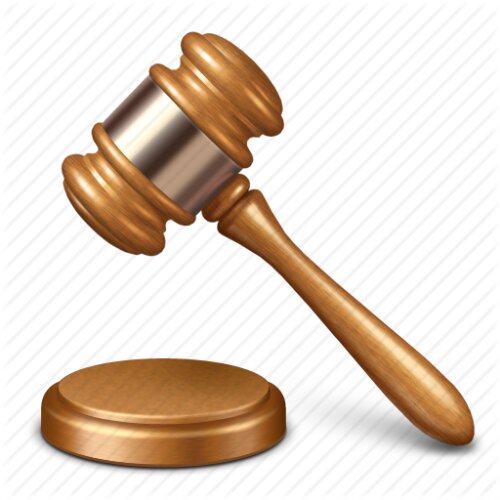Best Domestic Violence Lawyers in Pretoria
Share your needs with us, get contacted by law firms.
Free. Takes 2 min.
Free Guide to Hiring a Family Lawyer
List of the best lawyers in Pretoria, South Africa
About Domestic Violence Law in Pretoria, South Africa
Domestic violence is a serious issue that affects many individuals and families in Pretoria, South Africa. It encompasses various forms of abuse-physical, emotional, sexual, and financial-occurring within domestic settings such as marriages, relationships, or between family members. Domestic violence often remains hidden, exacerbated by societal stigma and fear of reprisal. South Africa has enacted specific legislation, such as the Domestic Violence Act of 1998, to provide a framework for the protection of victims and the prosecution of offenders. This guide will help you understand these laws and how to seek legal advice if you find yourself affected by domestic violence in Pretoria.
Why You May Need a Lawyer
Dealing with domestic violence can be a complex and emotionally challenging experience. Legal assistance can be crucial in several situations, such as obtaining protection orders, navigating the criminal justice system, understanding your rights, and ensuring your safety and the safety of any children involved. A lawyer experienced in domestic violence cases can provide essential support, guidance, and representation to help protect your rights and interests.
Local Laws Overview
The cornerstone of domestic violence law in Pretoria, South Africa, is the Domestic Violence Act of 1998. This legislation provides mechanisms for victims to apply for protection orders against perpetrators. Protection orders can prohibit abusers from contacting or coming near the victim, evict them from shared residences, or prevent them from committing further acts of abuse. Additionally, South African law obligates the police to respond adequately and protect individuals at risk of domestic violence. Other relevant laws include aspects of the Criminal Procedure Act and the Children's Act, which address related issues such as child protection and custody.
Frequently Asked Questions
What constitutes domestic violence under South African law?
Domestic violence includes physical, emotional, psychological, sexual, and financial abuse, along with harassment, stalking, and damage to property within a domestic relationship.
Who can apply for a protection order?
Individuals experiencing domestic violence, or someone acting on their behalf, can apply for a protection order at the nearest magistrate's court.
What is the process for obtaining a protection order?
The process involves completing an application at the magistrate's court, presenting the case, after which an interim order may be granted pending a return date where both parties can present their case.
Are protection orders temporary or permanent?
Protection orders can be both. Initially, an interim protection order is granted, typically followed by a court hearing, after which a final order may be issued based on presented evidence.
What can a protection order entail?
A protection order can dictate that the abuser stops any form of abuse, stays away from the victim, vacates a shared residence, and refrains from any contact with the victim.
How can the police assist in cases of domestic violence?
The police are obliged to assist victims by enforcing protection orders, arresting violators of such orders, and generally ensuring the safety of victims.
What should I do if I am falsely accused of domestic violence?
It is critical to seek legal advice immediately. A lawyer can help you navigate the legal process, gather evidence, and represent you in court.
Can domestic violence affect child custody decisions?
Yes, the court may consider any history of domestic violence when making decisions about child custody and visitation to ensure the child's safety and well-being.
How long does it take to obtain a protection order?
The timeline can vary; however, an interim order can often be obtained within a few days, with a final order taking longer, subject to court schedules and hearings.
What happens if an abuser violates a protection order?
Violating a protection order is a criminal offense. The police can arrest the violator, and they may face criminal charges, fines, or imprisonment.
Additional Resources
Several resources and organizations are available to provide support and assistance to those affected by domestic violence in Pretoria:
- The South African Police Service (SAPS) offers immediate assistance and support for domestic violence incidents.
- The Department of Social Development provides counseling and shelter services.
- Non-governmental organizations such as POWA (People Opposing Women Abuse) offer legal advice, counseling, and refuge for victims.
- The Legal Aid South Africa offers legal services to those who can't afford a private lawyer.
Next Steps
If you or someone you know is experiencing domestic violence, it's important to take action to ensure safety and legal protection. Start by contacting the nearest police station to report the abuse and seeking immediate help from local support organizations. For legal assistance, consider reaching out to a lawyer specializing in domestic violence cases who can provide guidance tailored to your specific situation. It may also be helpful to keep detailed records of any incidents of abuse, including dates, times, and descriptions, to support your legal case.
Lawzana helps you find the best lawyers and law firms in Pretoria through a curated and pre-screened list of qualified legal professionals. Our platform offers rankings and detailed profiles of attorneys and law firms, allowing you to compare based on practice areas, including Domestic Violence, experience, and client feedback.
Each profile includes a description of the firm's areas of practice, client reviews, team members and partners, year of establishment, spoken languages, office locations, contact information, social media presence, and any published articles or resources. Most firms on our platform speak English and are experienced in both local and international legal matters.
Get a quote from top-rated law firms in Pretoria, South Africa — quickly, securely, and without unnecessary hassle.
Disclaimer:
The information provided on this page is for general informational purposes only and does not constitute legal advice. While we strive to ensure the accuracy and relevance of the content, legal information may change over time, and interpretations of the law can vary. You should always consult with a qualified legal professional for advice specific to your situation.
We disclaim all liability for actions taken or not taken based on the content of this page. If you believe any information is incorrect or outdated, please contact us, and we will review and update it where appropriate.

















